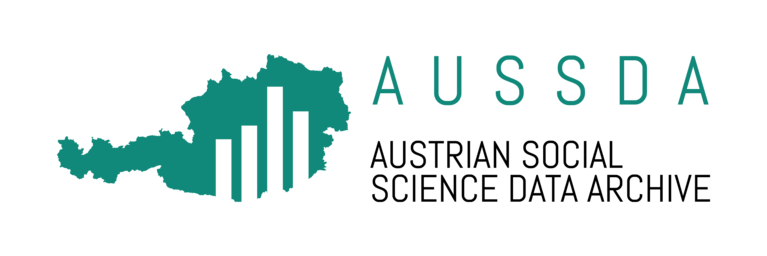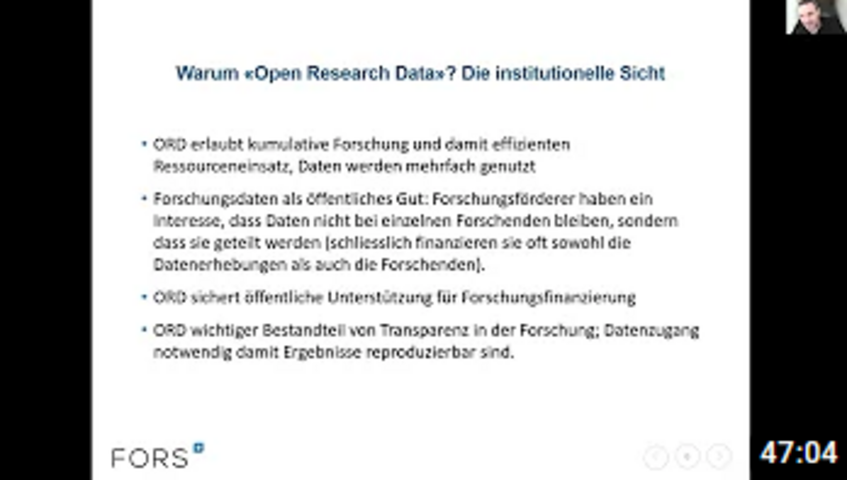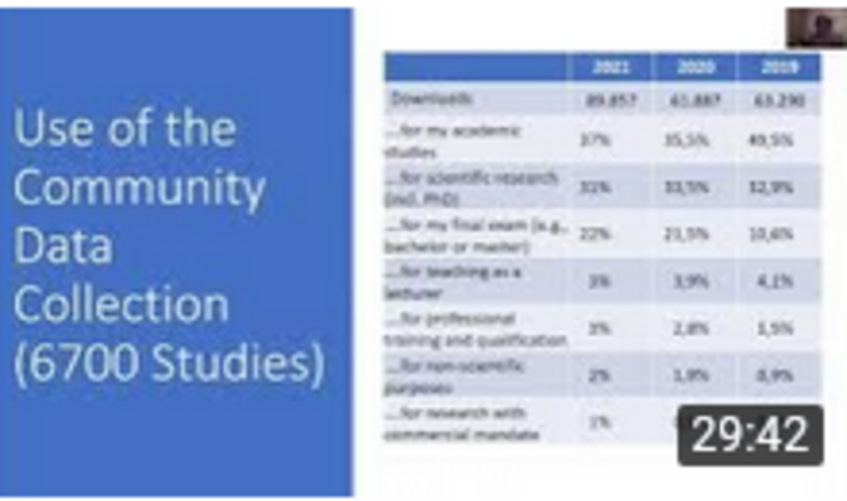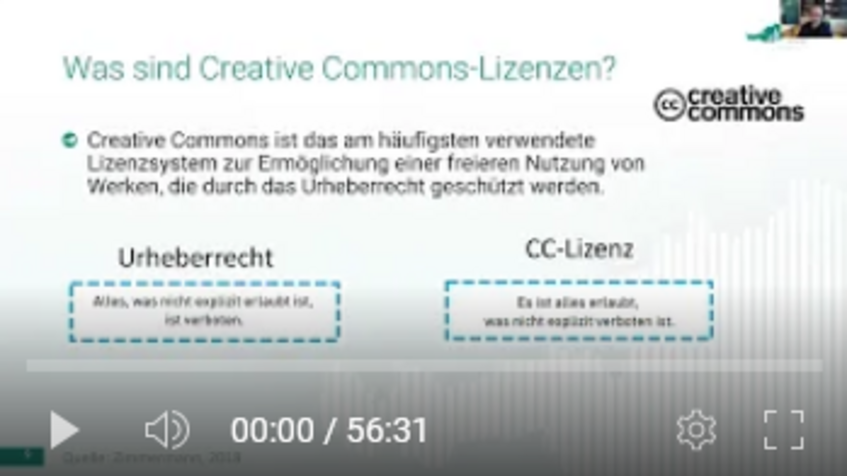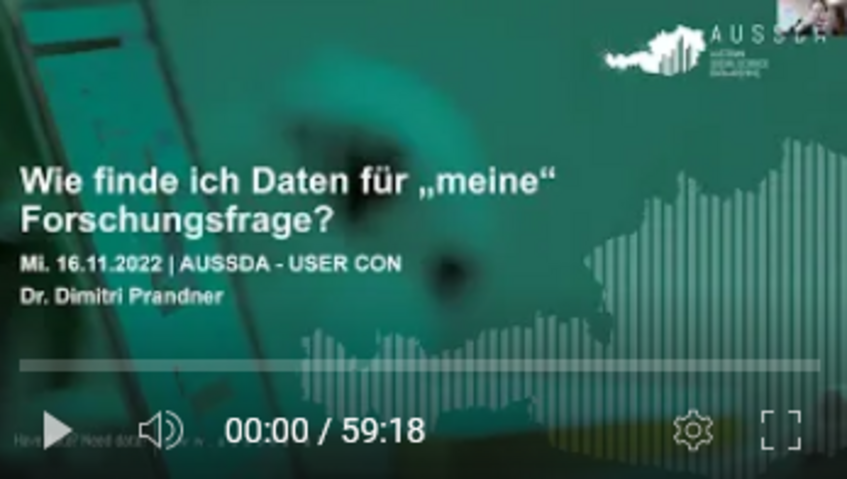The first AUSSDA UserCon: Reusing data in the social sciences
Our first user conference, which took place in November 2022, focused on the reuse of data in the social sciences. We invited the social science community in Austria to join us in exploring the potential that lies in the reuse of existing research data and thus to conduct research in a more transparent and efficient way, while focussing on gaining new scientific findings and knowledge.
The UserCon programme included two keynotes and two workshops.
Watch the presentations here:
Keynote by Prof. Dr. Georg Lutz (FORS): Open Research Data: The (Future) Benefits for Researchers
Why should you reuse data collected by others for your own research? What are the challenges of using secondary data? And how do recommendations for a sound data management strategy look like? Prof. Dr. Georg Lutz from our Swiss partner archive FORS answers these questions and more. (in German)
Keynote by Prof. Dr. Alexia Katsanidou (GESIS): Giving Data a New Life – Harmonisation and Linking for Secondary Data
In her keynote at the first AUSSDA User Conference, Prof. Dr. Alexia Katsanidou from our German partner archive GESIS explains the process, the benefits and challenges of harmonising and linking secondary data in the social sciences. (in English)
Workshop with Dr. Otto Bodi-Fernandez, Uni Graz: Open Educational Resources - Teaching with AUSSDA data
Dr. Otto Bodi-Fernandez from AUSSDA Graz presents Open Educational Resources (OER). After an overview of already available, freely usable AUSSDA teaching materials, Dr. Bodi-Fernandez demonstrates use cases to show how AUSSDA data and documentation materials can be used in teaching. (in German)
Workshop with Dr. Dimitri Prandner, JKU Linz: Secondary Analysis in Research - Using AUSSDA Data for Studies and Research
In his workshop, Dr Dimitri Prandner from AUSSDA Linz illustrates how archived data can be used for publications and theses. Using selected examples, Dr. Prandner will provide insight into how researchers, Master's or PhD students can find suitable data sets, process them and use them in their work. (in German)
